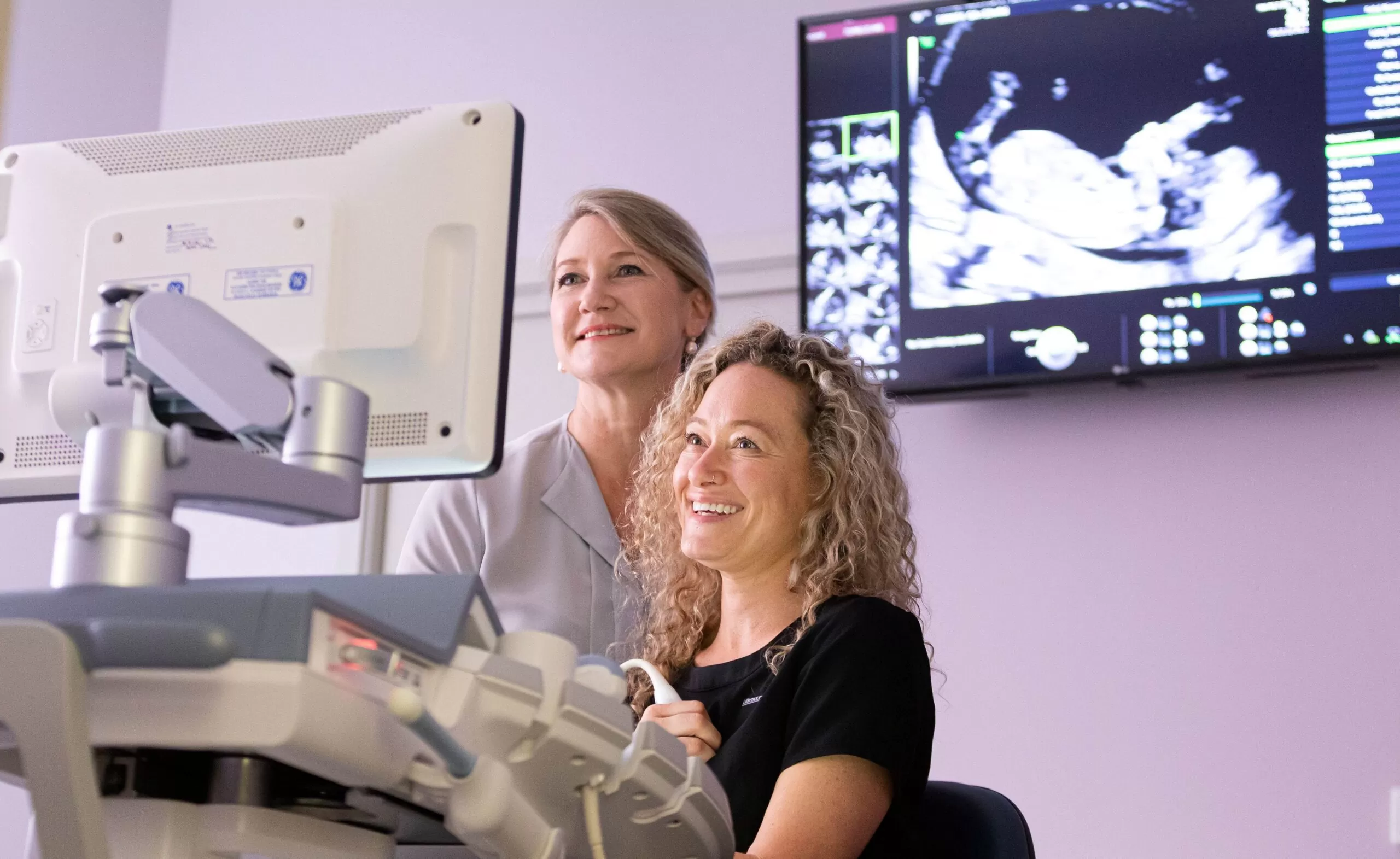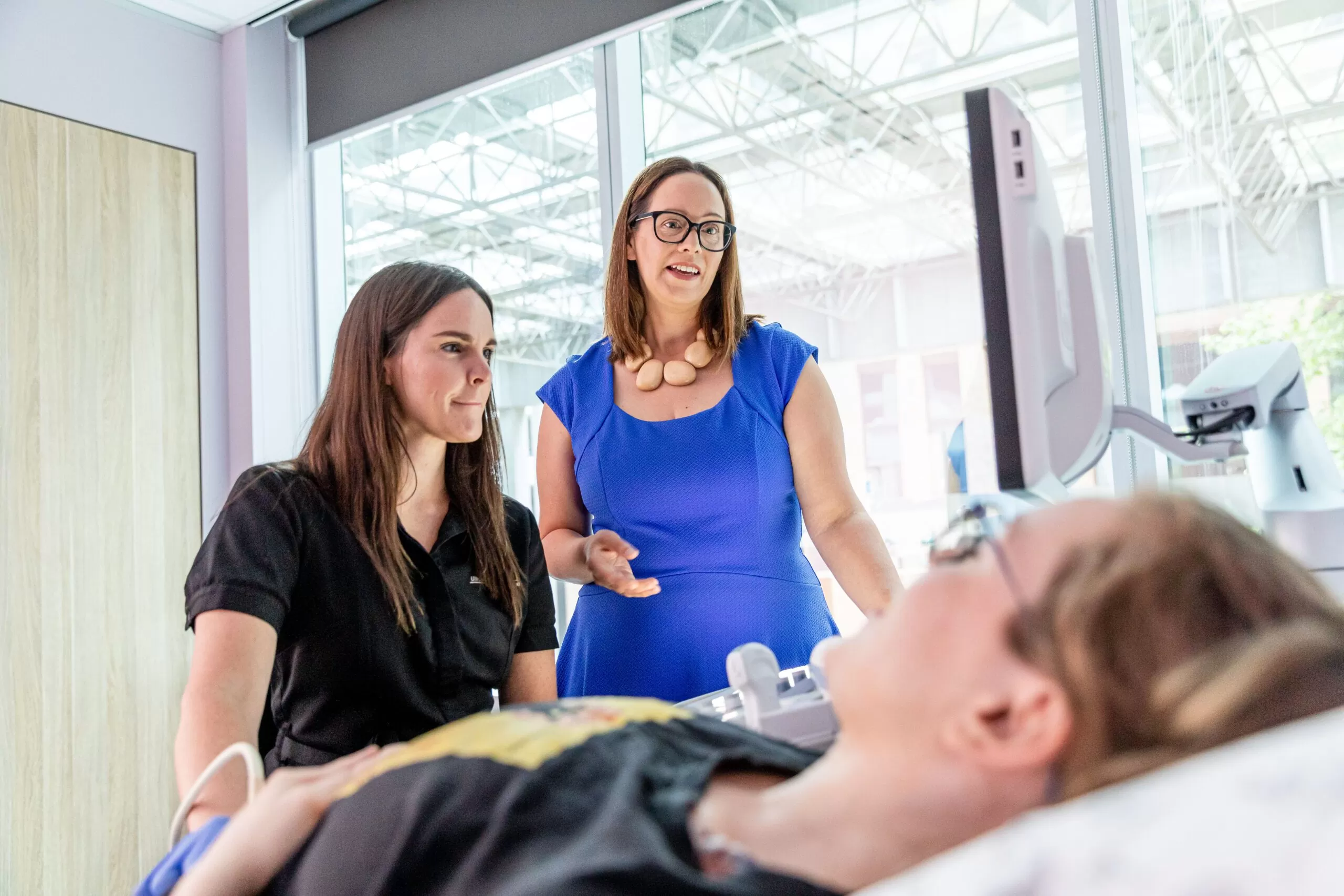10 Week Ultrasound: It’s Screening Time!
At 10 weeks your baby is now the size of a strawberry. Their fingers and toes have clearly formed and some of the key structures in their brain and spine are becoming apparent. With expert sonographers and state of the art scanning machines many of your baby’s internal organs are now becoming visible with ultrasound.
10 weeks gestation is the earliest time that Ultrasound Care recommends NIPT screening
From 10 weeks, it is possible to screen your baby for chromosomal anomalies such as Down Syndrome. A common test performed is the NIPT, where blood is taken from the mother and used to screen DNA from their baby. At this stage, it is too early to confirm your baby’s gender by ultrasound but if you are keen to start decorating your nursery or planning a gender reveal party you can find out your baby’s gender when you have an NIPT.
Your baby is on the move
Your baby will move for much of the time as it develops new muscles and joints. During the scan, families are often amazed at how much the baby moves. You can’t feel these movements yet as your baby is still too small to kick hard enough for you to feel them.
What can I expect at 10 weeks gestation?
You may notice the emergence of several new symptoms as your pregnancy progresses. You may experience heartburn, even if this has never been an issue before. Avoiding heavy, fatty and spicy foods can help. There are also several over-the-counter medications which can help. If this is an issue for you, talk to your local pharmacist, midwife or doctor. Despite the superstition, the presence of heartburn is not associated with the baby being one gender or the other.
Many women report sleep, vivid dreams, and mood disturbances. Your emotions can be quite changeable, and some women report crying and distress over small incidents that would not have been troublesome before pregnancy. This is often a result of the hormones of pregnancy and often settle with time.
Depression can certainly occur in pregnant women, and if these symptoms tip over into more serious feelings, including those of self-harm, it is important to seek help. There are many interventions and treatment which do not involve medication. There are medications for depression and available which are safe and effective, and you should not be put off seeking professional advice if required. Many pregnant women have successfully navigated depressive episodes and come out the other side safe and well.
If you would like to arrange an appointment with Ultrasound Care or find out more about the NIPT test and what is involved, please click and visit our NIPT page here, or call us at a location of your choice to arrange for an appointment.






